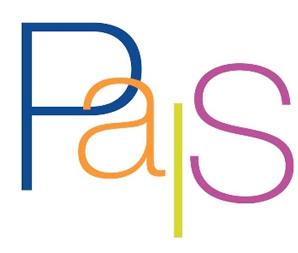The Department of Politics and International Studies (PAIS) at the University of Warwick is home to 300 undergraduates, 140 taught postgraduates, 65 PhD students, and 40 full time academic staff, allowing it to bring together expertise in a range of subdisciplines in Political Science, including International Political Economy, International Relations, Security Studies, Development Studies and Comparative Politics. And the flexibility of our postgraduate degree programme structure means that you will be able to tailor your course to suit your interests.
PAIS is proud to recruit students from all over the world. This year 54 different countries are represented in our postgraduate cohort. Each year, a significant proportion of our intake is made up of individuals returning to study after several years in the world of business or the public sector. Many such applicants are driven by the need to acquire a sound theoretical and methodological base to allow them to proceed to the next level in their chosen career path.
Course structure
All of PAIS’s postgraduate modules are taught in small seminar groups with a maximum size of fifteen, ensuring that you will benefit from personal interaction with the Department’s expert staff.
PAIS runs seven different MA/Diploma programmes, each with its own core module. Students pick from a wide range of optional modules, with choices including ‘The Politics of Global Finance’, ‘New Security Challenges’, ‘East Asian Development Models’ and ‘Terrorism and Counterterrorism’. The core modules of other PAIS postgraduate programmes are available to all other students as optional modules. Students can also take selected modules from other departments, including Economics, Law, Sociology and Philosophy.
You do not need to sit any examinations on the PAIS postgraduate degree programmes. Your core module is assessed by two short timed assignments (questions are collected on a Friday afternoon, and a short essay submitted the following Monday morning) and a longer research essay. All PAIS optional modules (including core modules taken as options) are assessed by research essays.
As well as studying taught modules, MA students complete a 10,000 word dissertation, which is supervised by a member of PAIS’s academic staff during the summer term.
Research environment
PAIS is a major Political Science research centre. We have around 65 PhD students registered at any one time, and our MA Politics degree is an Economic and Social Research Council (ESRC)-recognised research training programme.
The Department is home to several research centres and projects. The Centre for the Study of Globalisation and Regionalisation (CSGR) focuses on International Political Economy. Centre Director Professor Leonard Seabrooke led the recent Warwick Commission on International Financial Reform, the findings of which have been widely disseminated. CSGR is also the administrative centre of the Building Global Democracy Programme. PAIS Professor Stuart Croft is the director of the £2.4m New Security Challenges programme. PAIS Professor Shirin Rai is director of the multi-site, Leverhulme Trust-funded Gendered Ceremony and Ritual in Parliament Programme. PAIS is also home to numerous other groups, including the Centre for Ethics, Law and Public Affairs, the Centre for Studies in Democratisation and the Warwick Global Development Society. Every week during term time, PAIS hosts its Seminar Series, a lecture slot where guest speakers present their research. All of these activities and events provide a vibrant research environment, from which our postgraduate students greatly benefit.
Life at the university
Warwick’s central campus can fulfil all of your studying, socialising, and recreational needs. Unlike some other universities, at Warwick you will never have to use a bus to travel between classes. Everything is within easy walking distance. As well as the central University library, the central campus is home to the Learning Grid, a facility that is open 24 hours a day, 7 days a week, every day except Christmas Day!
Many postgraduate students choose to live in one of the central campus’s halls of residence. When allocating accommodation, the University gives priority to overseas students who apply to the University before the end of July.
After you graduate
All of PAIS’s MA programmes will prepare you for doctoral research. Warwick is also a great place to forge a network of contacts that will help you fulfil your career ambitions after you graduate – or even before! Several of our students proceed to internships and employment immediately after handing in their dissertations! Alando Terrelonge, one of 2009’s MA International Relations students, is now an intern at FRIDE, a leading European think tank. Inga Werdes, an MA International Political Economy graduate from the same year, is a Parliamentary Advisor in the European Parliament. As well as opportunities such as these, our graduates have gone on to careers in civil service, NGOs, management, consultancy, public relations, and many other areas!

 Continue with Facebook
Continue with Facebook





